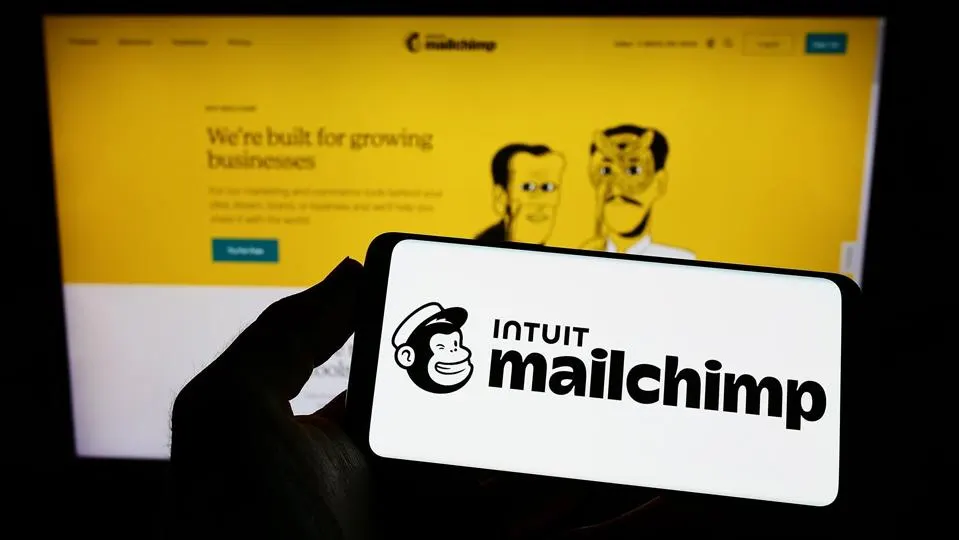The Top PropTech Trends: 6 Technologies Disrupting The Property And Real Estate Industry
2 July 2021
No industry is immune to technological advances, but real estate is one niche that has been traditionally slower to adopt new trends. Not any longer! PropTech is booming and changing the way we buy, sell, and interact with our properties. I have recently been to ProbTech events to deliver keynotes, and more and more companies in the industry are asking for my advice on tech transformation. So, with this post, I would like to share the key trends every real estate professional and property manager needs to be aware of.

Here are my top six PropTech trends that are happening now:
Big Data
The real estate and property management industries are uniquely positioned to benefit from big data. The more data we have, the more data-driven decisions we can make.
Websites like Zillow, Trulia, and Redfin have disrupted the real estate industry using the power of big data. These companies are able to compile and sometimes collect data on buying and selling trends in a specific area, traffic, demographic information, consumer survey results, and more and then analyse and collate that data to offer insights on pricing, home-value trends, and potential value in certain neighbourhoods.
For owners and property managers, big data is about gathering realtime and historical information about all kinds of building systems — like electrical, HVAC, fire/life safety, utilities, telecommunications, and others — and translating that into proactive maintenance. In some cases, it may even alert a property manager to an equipment failure before it happens, allowing them to perform maintenance or source a replacement with minimal downtime. That keeps tenants and property managers happy.
AI and machine learning
While the real estate and property industries may have been slower to adapt to changing technologies, they are catching up, and AI and machine learning will help make the data they are already collecting more actionable.
For example, right now, property search sites rely on simple preferences like location and size to display properties for sale; in the near future, however, AI may enable these sites to recommend properties based on preferences, personality traits, and values.
Chatbots on these search sites may be able to answer consumer questions quickly and easily, and they might even accompany buyers to showings. Several companies are working on technology that would allow a real estate agent to conduct showings via a tablet or with a chatbot, allowing one agent to do more showings in a day.
AI will also be able to help predict pricing trends more accurately. This type of technology would look at historical trends in the market for an area, but might also take into account area crime, schools, transportation, and marketplace activity.
It may also make the buying experience faster and easier. Startups are already creating ways to digitise the entire homebuying experience — no more reams of paper to read and sign at closing.
Virtual and augmented reality
According to a survey by the National Association of Realtors, nearly half of all potential homebuyers search for properties on the internet first. Virtual reality and augmented reality will make the online search and home buying experience even more exciting and accessible.
Realtors can create virtual reality tours of properties that potential buyers can experience from the comfort of their own homes — or to help long-distance buyers virtually tour properties they can’t physically visit.
Staging is a great way to increase the perceived value of a property, but it can be a heavy expense. Companies like roOomy are enhancing the online buying experience by allowing realtors to virtually stage a property by digitally adding furniture and accessories to interior photos.
For new builds, virtual reality can create realistic architectural images and walkthroughs to help buyers understand and experience the property — even before construction begins.
And for property managers, creating a virtual reality tour of the space might help new tenants get acquainted with their space. Instead of lengthy written instructions on how to use the thermostat or environmental controls, for example, a virtual tour could quite literally walk the tenant through the process, demonstrating each step along the way.
Internet of Things
The Internet of Things (IoT) refers to “smart” devices and appliances that are digitally connected to the cloud, constantly sending and receiving information.
As mentioned above, machines that include smart sensors can alert owners or property managers to potential problems and even allow for predictive maintenance. But in the future, homebuyers may be able to download a comprehensive history of a home’s maintenance and upkeep through its smart devices connected to the electrical, HVAC, and plumbing. No more guessing or paying for costly inspections to understand the condition of a house.
These sorts of devices also help with energy efficiency and can create real cost savings for the homebuyer or property owner.
As the IoT grows, we’ll go beyond individual smart devices and start seeing entire smart buildings — even smart cities — that are constantly connected, sending, and receiving data. That will pave the way for big data and AI and machine learning to create even more insights and improvements we may not even be able to predict yet.
5G
The promise of 5G is key to a lot of these transformations. 5G will provide more bandwidth that will allow more smart devices and sensors to connect to the internet. The higher bandwidth will create truly wireless workplaces and potentially allow more workers to telecommute.
One example of how 5G may affect the real estate industry is through home security. With 5G, it will be easier (and less expensive) to connect many sensors and cameras around a property. These devices will be able to capture higher definition images and transmit them almost instantaneously anywhere.
But to accomplish all this, we need considerably more 5G base stations than for current technologies, and they need to be placed much closer together. This could have impacts for commercial property owners who may be able to lease space for telecom providers to instal base stations or even instal their own base stations and provide power and fibre connexions.
Drones
Drones might seem like a gimmick in real estate, but they aren’t going anywhere and have the potential to change the market.
Digital, multi-perspective site visits are now possible, creating emotional storytelling around a particular property. They provide relatively easy and budget-friendly aerial photography that would have been prohibitively expensive just a few years ago. They’re especially useful for displaying bigger homes and properties, giving a real feel for the size of a place.
Drones can also be used to provide a tour of the area. For new builds, a drone might capture the feel of a new neighbourhood. It could also help people considering a move to a new town or neighbourhood get a feel for the place before visiting.
And drones can also be used to spot potential risks or maintenance problems, which could lower the price of a property or be used in negotiations.
At some point, drones may even be used to tour a property remotely. Right now, it’s difficult to navigate a drone through a small, enclosed space like a typical home. But for large commercial or industrial sites, the potential already exists. Drones can also be useful when surveying properties or creating drawings of as-built properties.
As you can see, property and real estate professionals should ignore technological innovations at their own peril. These PropTech trends are just the beginning of the wave of improvements and changes to come.
Related Articles
How Generative AI Will Change The Job Of Real Estate Agents
Real estate agents and other professionals in their industry are in the business of selling good old-fashioned solid bricks and mortar.[...]
How BCG Is Revolutionizing Consulting With AI: A Case Study
In a world where AI is transforming every sector, companies are constantly seeking ways to gain a competitive edge.[...]
The Biggest Education Trends Of The Next 10 Years
Education is changing rapidly. In today’s fast-moving world, a model where we graduate in our youth prepared for a lifelong career is simply no longer valid.[...]
Is This AI’s IPhone Moment?
Today, the term “iPhone moment” is frequently used to refer to a technology breaking through into the mainstream.[...]
AI Politicians: The Future Of Democracy Or A Threat To Freedom?
2024 is a big year for democracy, with over two billion of us voting in elections across the US, India, the EU, the UK and many other countries and territories.[...]
How Mailchimp Hopes To Build The End-To-End AI Solution For SMEs
I often write about AI's potential to transform any business. Yet, a question I frequently get from small businesses is, "Does that really include us?"[...]
Sign up to Stay in Touch!
Bernard Marr is a world-renowned futurist, influencer and thought leader in the fields of business and technology, with a passion for using technology for the good of humanity.
He is a best-selling author of over 20 books, writes a regular column for Forbes and advises and coaches many of the world’s best-known organisations.
He has a combined following of 4 million people across his social media channels and newsletters and was ranked by LinkedIn as one of the top 5 business influencers in the world.
Bernard’s latest book is ‘Generative AI in Practice’.










Social Media